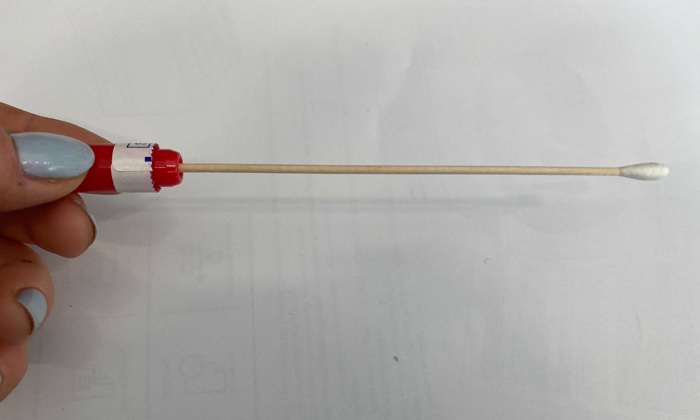A step closer to diagnosing Parkinson's with a skin-swab test
12 Mar 2021
The study results offer hope that a pioneering new test could be developed to diagnose the degenerative condition through a simple and painless skin swab

Manchester scientists have developed a technique which works by analysing compounds found in sebum - the oily substance that coats and protects the skin - and identifying changes in people with Parkinson’s Disease. Sebum is rich in lipid-like molecules and is one of the lesser studied biological fluids in the diagnosis of the condition. People with Parkinson's may produce more sebum than normal - a condition known as seborrhoea.
The research has been funded by charities Parkinson’s UK and the Michael J. Fox Foundation as well as The University of Manchester Innovation Factory. The work was originally funded following an observation by Joy Milne, whose husband was diagnosed with Parkinson’s at the age of 45. Working with Dr Tilo Kunath at the University of Edinburgh, Joy demonstrated an incredible ability to distinguish a distinctive Parkinson’s odour in individuals using her sense of smell, even before symptoms emerge in those affected.
The team, led by Professor Perdita Barran at The University of Manchester, and clinical lead Professor Monty Silverdale at Salford Royal Foundation Trust, recruited 500 people with and without Parkinson’s. Samples of sebum were taken from their upper backs for analysis. Using different mass spectrometry methods, 10 chemical compounds in sebum were identified which are elevated or reduced in people with Parkinson’s. This allows scientists to distinguish people with Parkinson’s with 85 per cent accuracy.
Professor Perdita Barran, Professor of Mass Spectrometry, said: “We believe that our results are an extremely encouraging step towards tests that could be used to help diagnose and monitor Parkinson’s.
“Not only is the test quick, simple and painless but it should also be extremely cost-effective because it uses existing technology that is already widely available.
“We are now looking to take our findings forwards to refine the test to improve accuracy even further and to take steps towards making this a test that can be used in the NHS and to develop more precise diagnostics and better treatment for this debilitating condition.”
- You can read more about this study on our news room page.
